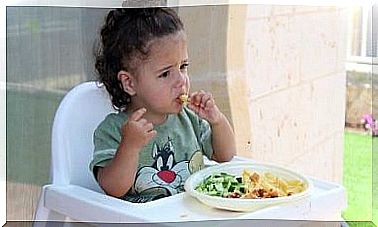Family Traditions: How They Are Created And Why They Are Important

There is an immense variety of traditions that can hold great values in families. You may already have some customs, but if you now have your own family, you may want to create your own to pass on to your children. Here are some tips to help you form your own family traditions.
What are family traditions?
The word tradition comes from the Latin traditio . It consists of the set of cultural assets that are considered valuable; These are essential to maintain and pass on to new generations as a legacy.
Traditions are inherited and become part of the identity ; They must be able to renew themselves and develop new expressions so that they maintain their usefulness and value without losing their essence.
Basically, they are customs or certain behaviors that families assume and that distinguish them from others. When customs are passed down from generation to generation, either in a representative oral way or through instructions, they become a tradition.
How to create traditions in a family?
When starting a new family, you should develop your own traditions. To create them, you could take as a basis the activities that you have inherited from your parents. You can also try the following activities:
Helpful
They are meaningful activities to help other people, such as cleaning neighborhood gardens, restoring old furniture or cabinets.

Musicals
You can participate or attend musical concerts with family members, be part of a choir, or simply listen to music one day of the week.
Physical
These are activities that adults, children and young people can do together. They could cook, paint, ski, hike, hunt, fish, skate, or even dance.
Social
Among these activities for all ages are entertaining themselves with board or card games. Likewise, you can consider picnics, going to the beach, the movies, meetings to read a book in the living room and parties.
Natural
To enjoy nature, you can go hiking in the fall or winter and see the stars at dusk. Perhaps feed wild animals such as birds or fish and camp in a quiet and secluded place.
Dramatic representations
These are excellent opportunities for puns or pantomimes at dinner time. Another option would be for them to attend plays or theatrical performances by your children at school.
6 points to consider when forming family traditions
When building family traditions, you should consider the following:
- If you are going to go out somewhere to eat every so often, it is recommended that you anticipate the expense involved in advance, so that it is not an inconvenience.
- Do them stress-free: As you continue to do them, you can learn to improve the next time.
- Build family traditions from good memories. Thus, the results will be favorable for all members of your family.
- Make simple and small things special; in this way, you will create memories with them. Also, keep in mind the bond that they can generate between family members.
- Include your parents and grandparents in your new traditions so that they do not grow apart and feel like an indispensable part of the family nucleus.
- You must let your children know that there are times in the year that they should experience them as a family. Thus, they will remain faithful to the traditions and their great value will not be lost.

The importance of traditions
Traditions play a fundamental role in the psychological development of children. Much of the teachings they receive are transmitted through them.
They evoke stories, goals and values that go from one generation to another, which motivates, shapes and shares a family identity. In addition, they provide security, since when a young person knows what is going to happen, they feel calm, safe and happy.
On the other hand, they are closely related to stability, mental health, and personality development. They not only define the family identity, but also that of all the members in particular; therefore, they raise their self-esteem.
There are many family traditions that promote love and unity that you can enjoy . Put these tips into practice to build your own traditions or maintain the ones you already have by giving them another approach. Finally, transfer them to your children to keep certain values intact over time.










